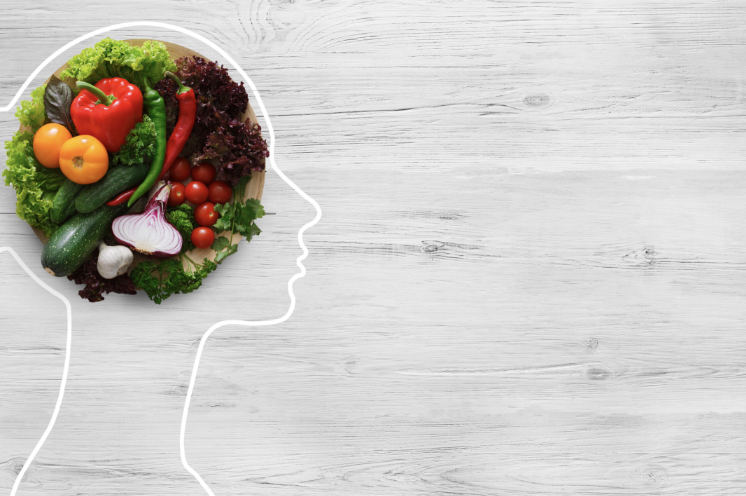Many of us are familiar with the iconic Snickers tagline, “You’re not you when you’re hungry”, but the phrase has implications beyond selling chocolate bars. Researchers have increasingly illuminated how food insecurity and nutrition access impacts our psychology, from depression and anxiety to eating disorder risk. When basic needs like adequate meals go unmet, our mental health and physical health feel the burden of this. These findings further demonstrate how intrinsically our minds and bodies are connected. This blog will discuss the ripples of food insecurity and discuss food as a means of supporting positive mental health.
Defining “food insecurity”
The term food insecurity may be foreign to some, and, at first, it may be hard to understand. Is this referring to feeling insecure about the food that you eat? Is this the same as feeling shame around eating? Or is it not being able to protect one’s food supply? Based on the term alone, these are fair interpretations, but the reality stands somewhere in between. The US Department of Agriculture defines food insecurity as a household-level economic and social condition of limited or uncertain access to adequate food1. What may be worth clarifying in this definition is that “adequate” applies both to quality and quantity. A family with access to an abundance of food, living near a high density of corner stores or fast food joints, could still be considered food insecure. These food sources may revolve around highly processed and packaged items that can be stored for long periods. The items that are affordable may be devoid of key nutrients needed for a healthy diet. On the other hand, a family living in an area with several health markets and grocery stores may have access to high-quality, fresh produce, but the prices of these items may mean they are not able to purchase enough food to qualify as “adequate”.
As you may find yourself relating to the above descriptions, it’s clear that food insecurity is far from a rare experience. As of 2022, around one in eight households encountered food insecurity, a shadow of the end of many federal social safety nets established to support families during the COVID-19 pandemic2. Because food insecurity is a flexible condition, anyone can experience this for any given period of time. Though many may not expect this, a frequently food insecure demographic is college-aged students. Their experiences reflect a key temporal aspect of this issue. When at the mercy of a meal plan at a dining hall that may not cater to allergy restrictions or is open during limited hours during the week, you may become food insecure for certain periods of time. This is also connected with public transportation access. A college student who may not own a car may rely on a bus or subway system to get to the grocery store, taken it is not within walking distance of their campus. If that transportation infrastructure does not exist, food insecurity becomes an additional burden to plan around amid the existing stresses of student life. In taking a public health lens to mental health, food access is a structural variable in our environment that frames our wellbeing in multiple dimensions.
Food Insecurity and Mental Health
Having established an initial understanding of what food insecurity can look like, it might be intuitive to extend concerns about broader health impacts. Simply walking through the grocery store can teach us that healthy options drift out of reach when money is tight. With the established knowledge that diet is a central factor in chronic disease risk, from hypertension to atherosclerosis, it makes sense to extend this question to psychological health. According to a study conducted with lower-income families during the COVID-19 pandemic, being food insecure multiplied the risk of depression and anxiety over 250%, even more than losing a job3. While this study was associative and no direct causal mechanism was determined, it was highlighted that the shame and stigma experiences around receiving assistance to meet food needs may have been a first to many during the pandemic period. If the stigma around food assistance is this prevalent, the double burden of mental health stigma only makes getting help more difficult. This could also lead to a cyclical effect where mental health burdens introduce new financial difficulties, both in accessing treatment and the everyday challenges of depression and anxiety. Adequate nutrition is then even further out of reach, and the cycle continues, amplified by latent stress, often experienced by parents who feel incapable of providing for their family3.
Beyond mood and anxiety disorders alone, food insecurity has links to eating disorder risk as well. While this may seem obvious in some respects, this flies in the face of rhetoric that characterizes common eating disorders as “diseases of affluence”4. For example, media portrayals of anorexia nervosa or bulimia nervosa often center on upper-middle class white female characters. This is not to say that demographic does not encounter food insecurity, however the literature highlights that eating disorder risk transcends socioeconomic status4. The review suggests that many food insecure individuals are forced to make restrictive choices about when, how much, and what to eat, which could exacerbate any prior history of disordered eating or deepen any existing vulnerabilities. Further, treatment of eating disorders often relies on having access to nutritious, satiating food options for someone to incorporate into their diet. Undoubtedly, this becomes harder for patients facing food insecurity. While much of the discourse around eating disorders focuses on restrictive eating as a response to food scarcity, there is also a connection between binge eating disorder and food insecurity, described as the “feast or famine cycle” by researchers at the University of Minnesota School of Public Health5. In light of someone’s prior food insecurity, access to food, even temporarily, can result in binge-eating behavior that is further reinforced in the context of a potential future period of scarcity5. In other words, when access to nutrition is unstable, it can make for an unstable relationship with food and eating, since the tendency to control eating can be validated by external economic and access barriers.
While food insecurity certainly increases risks for certain psychological conditions, it also increases the odds that an individual faces unmet mental health needs6. Food insecurity largely shifts individuals’ priorities away from mental health concerns, instead concentrating time and attention towards navigating financial aid and low-cost food resources to cover meals. For many, food insecurity may mean choosing between an important doctor’s or therapist’s visit and affording groceries, which reduces someone’s capacity to care for their mental health at all6.
Food Support and Positive Mental Health
In considering the ripple effects of living through the condition of food insecurity, the outlook can seem bleak, but there are ways that providers and communities can work together to remedy the psychological burden of this issue. At a broad level, initiatives like urban farming, campus gardens, or community fridges can all contribute to accessible, non stigmatizing food support where community members mutually benefit and contribute7. These efforts can also increase the amount of time that people in a neighborhood interact with each other, providing a space for social support to combat the isolation that could worsen depression and anxiety symptoms. These communal third spaces are also essential in sharing key resources that could further alleviate food insecurity. Increasing provider education around the signs of food insecurity in order to screen and connect patients with resources is another essential effort in preventing the negative consequences7. For example, many hospitals operate community benefit programs like “food as medicine” clinics in order to support healthy diet choices for those facing chronic diseases, which is a model that could be adopted outside of healthcare8. For younger populations, school breakfast and lunch programs can be stakeholders in intervening in food insecurity. If a student is able to directly access nutritious meals at school for low to no cost, their learning and overall psychological health improves9.
With far reaching impacts, from depression to binge eating disorder risk, food insecurity is an important, yet under discussed consideration within mental healthcare. Like the Snickers motto suggests, we are not ourselves, or at least the healthiest versions of ourselves, when we face hunger and unstable food access. Community members can each do their part in supporting accessible and nutritious food options locally, while also advocating for broader change in their school and agricultural systems.
References:
- https://www.ers.usda.gov/topics/food-nutrition-assistance/food-security-in-the-u-s/definiti ons-of-food-security/
- https://frac.org/hunger-poverty-america#:~:text=Hunger%20Quick%20Facts%20for%202 022,Americans%20lived%20in%20these%20households.
- https://bmcpublichealth.biomedcentral.com/articles/10.1186/s12889-021-10631-0
- https://www.sciencedirect.com/science/article/pii/S1471015321000751
- https://www.sciencedirect.com/science/article/pii/S019566632200407X
- https://www.ncbi.nlm.nih.gov/pmc/articles/PMC8367866/
- https://www.ncbi.nlm.nih.gov/pmc/articles/PMC10893396/#:~:text=Having%20adequate %20access%20to%20safe,anxiety%20associated%20with%20food%20insecurity.
- https://navicenthealth.org/service-center/healthy-communities/food-as-medicine-market
- https://onlinelibrary.wiley.com/doi/full/10.1111/joca.12163







